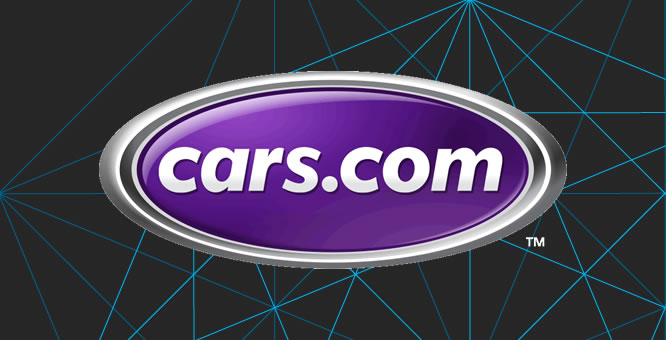Rank tracking software for retail SEO
Searchers shop.
Shoppers search.
STAT tracks them all.
Bricks-and-clicks. Auction sites. Peer-to-peer selling. Social shopping. Local classifieds. Now more than ever, there’s a wealth of ways to do retail online.
Yet, no matter the business model, most shopping sites have one thing in common: competition for organic traffic is fierce, and a key tool for pulling in that traffic is a large, highly optimized product selection.
That all adds up to a huge challenge for retail SEO teams. So the number one thing that draws those teams to STAT is our ability provide the sheer scale of daily SERP data they need.


“It’s the easiest way to get as much data as you need.”
We started using STAT, and already that has led us to being more on the ball as changes in the algorithms come out.
Jake Marcet
SEO Analyst, Cars.com
Big inventories, big SERP data
For SEO teams working on large shopping sites, the ultimate dream is to be able to track every relevant search query, for every product, in every market where you sell.
However, most SEO professionals have gotten used to the fact that truly comprehensive SERP insight is simply not feasible with existing SERP tracking tools.
That’s exactly why we founded STAT on the idea that it should be cost-efficient and ridiculously simple to track thousands—even millions—of keywords in markets and locations all around the planet.
There is literally no limit on how many keywords you can track every day. And we track all across the world, in every single country, language, and location that’s served by Google.
Since there’s also no limit on tracked websites, many of our clients perform full-scale, direct tracking of competitor sites as well. That gives them a comprehensive picture of the entire SERP—something that’s only feasible with a SERP tracking solution that’s priced with massive scale in mind.
Location, location, location
Of course, when brick-and-mortar locations or local sellers are involved, where people are searching is often just as important as which keywords they’re using.
With that in mind, STAT become the first rank tracking platform to introduce local SERP monitoring all across planet Earth. Our retail clients are able to track pin-point local search results by city, state, province, ZIP code, postal code, neighbourhood, and more.
That includes Google places results and other universal results like shopping, images, videos, and news, all of which STAT reports right alongside organic search results.


“STAT consistently delivers unparalleled results and customer service. I couldn't be more satisfied.”
Josh Wartena
Content Manager, eSupplements


“Our ability to monitor the performance of large sites, especially in retail and travel, is incredible.”
Kieran Bass
Strategy Director, Roast
As Google claims more and more SERP real estate for its own commercial search tools, it’s critical that retailers have an accurate understanding of the penetration of these universal results into local search queries. STAT has been tracking them from the beginning.
Going mobile with shoppers
If a large slice of your sales is already coming from shoppers on mobile devices, then we won’t need to explain the value of STAT’s ability to track mobile search results right alongside desktop SERPs.
But even for retailers who are less focused on mobile shopping, smartphone SERPs can still offer some critical pieces of intelligence.
Because geo-location services are so common on mobile devices, local search and mobile devices essentially go hand in hand. Google’s own research suggests that over half of smartphone searches done on the go have local intent.
“If your business relies on local customers, but you’re only tracking desktop SERPs, you’re missing a huge piece of the puzzle.”
In other words, mobile searchers are usually looking to find a business, get directions, look up store hours, and so on. And when shoppers decide to compare prices or product features when they’re already in a brick-and-mortar retail setting, they’re doing those critical searches on mobile devices.
What does that mean for retailers? Very simply, if your business relies on local customers, but you’re only tracking desktop SERPs, you’re missing a huge piece of the puzzle. Luckily, STAT has you covered either way.
Segmenting products and consumers
Yes, SERP tracking can seem overwhelming—at least at first. That’s where STAT’s endlessly flexible keyword segmentation comes into play.
In STAT, you can tag your keywords with any number of custom tags—for example, by product category, by product feature, by searcher intent, by PPC value, or by any other factor that’s important to your SEO strategy. There are even dynamic tags that work like smart playlists, changing on the fly as new keyword data rolls in every day.
STAT stats
Importantly, you can do all of your reporting, alerting, and dashboarding based on these tags. In effect, this allows you to slice and dice your keywords into any number of custom segments, then monitor and report on those segments separately, using metrics and performance thresholds of your own choosing.
Understanding new markets, new trends
STAT is big. But it’s also designed to move quickly, and to encourage flexibility and experimentation—both of which are vital for retailers who are moving into new markets, planning around seasonal products, or researching historical trends.
Bring 100,000 keywords into STAT. Run them in a few locations for a few days. Then switch things up. Track in new locations. Switch to mobile SERPs. Track some competitors. Then pause them all. STAT never gets in your way.
In fact, we make it easy to suspend your tracking on anything from single keywords to whole sites. You aren’t charged a penny for paused sites or keywords, and you can start tracking again at any time.
All of your historical site metrics, search volumes, and ranking data remain available, and you’ll have access to a fully parsed SERP archive for seasonal and trend research. All of this SERP data belongs to you, and you’re free to export and integrate it via our API at any time.

Common Questions
from retail SEO teams
-
Internal competing URLs are a real problem for us. How can STAT help us get a handle on them?
This is an issue in many industries, but retailers face an especially big challenge when they carry multiple similar products that are subtly but critically different.
STAT’s in-app reporting includes the option to report all of the ranking URLs for a tracked site. That includes multiple pages ranking for the same search query—not just your site’s top hit.
You can also make the job of spotting conflicts simpler by taking advantage of our keyword tagging to segment your customers’ search queries by product characteristic.
So, for example, a retailer who sells TVs and monitors can tag their search terms by price range, by physical dimensions, by screen resolution, by brand, and so on. This makes it much easier to identify when there is a mismatch between a product-related search and your top-ranking product page, and to start looking for the cause of the mismatch.
-
We often run seasonal campaigns. How hard is it to manage tracking for seasonal hubs or sites?
It’s not hard at all. STAT allows you to track any number of domains, subdomains, and directories, and you can pause and unpause whole projects in seconds.
When a site or project is paused, you aren’t charged a single penny for it, and all of your historical SERP data remains available. Then, when the season rolls around again, you can easily start tracking again and have fresh data within a day.
-
We don’t do brick-and-mortar retail. Why should I care about local SERPs?
Even if your sales aren’t highly local, tracking local SERPs can help you uncover local markets where your competition is weaker.
Once you’ve identified regions or cities with high search volumes and lower competition, you can strategically focus your content builds and other SEO efforts on bolstering your rankings in those specific local markets. In some cases, this can offer more bang for your buck than concentrating solely on national markets.
Of course, if mobile shopping is a significant part of your overall strategy, then it’s important to keep in mind that mobile searches are almost always localized as well.
For more on local search and local SERPs, you can check out our blog.
-
The majority of our revenue comes from a few products and some very-high-value keywords. How can STAT help protect my top rankings?
With fresh daily SERP data on a massive scale, you’ll be in a better position than anyone to see change happening and act first.
Concerned that you’ll be overwhelmed by all of that data and miss something important? That’s where our instant, custom alerts come in.
Alerts are completely customizable, giving you the power to monitor all of the metrics that matter most to your project and to set your own performance thresholds and comparison timeframes. You can create alerts based on any site, custom keyword segment, or individual keyword.
If you’re clever in setting up your alerts, it’s like having a little army of sidekicks keeping an eye on your most important keywords, 24 hours a day.
-
Google Shopping and other universal results are taking over my SERPs. Can STAT help us adapt?
STAT collects every top-100 organic result and universal result on Google SERPs and parses all of the relevant data like ranking URL, result title, result description, and so on.
That makes it straightforward to see which keyword spaces are now dominated by Google’s commercial search products. And since you’re getting daily updates, you’ll be the first to know when Google is moving in to new territories.
If you want to ignore universal results to focus strictly on your organic performance, we report both Google rank (including universal) and Google base rank (excluding universal).
For deeper research into Google universal results, some of our larger clients choose to use our separate, specialty bulk API services for full Adwords ads, full parsed SERP archives, or raw HTML SERPs. These are billed extra by site and are completely separate from our standard tracking service and API.
-
How many sites am I able to track?
We never get in your way by putting artificial limits on the number of websites you can track.
Track one site. Track 10,000 sites. It’s A-ok. You’re only charged for the keywords you track, no matter how many sites they are spread across.
In fact, if you track the same keywords against several web domains, you’ll be charged a much lower rate per keyword for every site beyond the first. We call these duplicate keywords.
-
How much do additional search engines cost?
Nothing! You always get daily rankings in Google and Bing for a single per-keyword rate.
-
Do I have to track all of my sites and keywords continuously? Or can I “pause” them?
No worries—STAT makes it simple to pause tracking on single keywords, single websites, or even entire projects.
This is handy for seasonal SEO efforts and for one-off research and experimentation. Digital marketing and SEO agencies find it especially useful for managing lots of client accounts as they switch back and forth between active and inactive.
You aren’t charged for paused keywords. All of your historical data for inactive keywords stays in STAT, so you can access and export it at any time.
-
How can I use my historical SERP archive? How long does STAT retain that data?
In addition to using their historical data to benchmark their SEO progress over time, many of our clients use their SERP archives for seasonality and trend research. It can be a huge volume of invaluable data, so the possibilities are almost endless.
As a part of our standard service, we retain all of your keyword data for two years, and raw SERPs for 10 months. If you need longer, you can export your data via our API, or you can always talk to us about extending your data retention.
-
What if I need to track over 100,000 keywords? How does your pricing scale?
STAT is designed especially for enterprise-scale SERP tracking.
If your tracking needs are huge, don’t worry — we can handle it. Our clients include some of the world’s largest online brands, tracking thousands of domains and locations globally.
Our pricing model is different than what you might expect from conventional enterprise software. We want to encourage all of our clients to think bigger and track more widely than ever before, so our per-keyword rates are highly competitive.
In fact, if you plan on tracking more than 100,000 unique search queries, ask us about special pricing and our bulk API services.
(For deeper custom research, some of our larger clients choose to use our separate, specialty bulk API services for full Adwords ads, full parsed SERP archives, or raw HTML SERPs. These are billed extra by site, and are completely separate from our standard API.)
-
What about highly local SERPs? Can you track by neighbourhood? By postal code?
You bet—we support any kind of search location that Google does, no matter how specific.
That’s especially important for mobile SERP tracking, since mobile users tend to have location services enabled and so receive highly localized search results.
-
How many countries and languages does STAT support?
We’re able to track in every market and language that Google supports across the globe. Thanks to our clients, we are now actively tracking in over 100 nations.
To avoid any confusion, please note that the STAT web app itself is available only in English. For easier collaboration between international teams, we give our clients the ability to import translations of their search terms in any language.
-
My business is highly local. What if I need to track in thousands of locations?
If your local rank tracking needs are huge, don’t worry—we can handle it. Our clients include some of the world’s largest online brands, tracking thousands of web domains and search locations globally.
In fact, if you plan on tracking more than 100,000 unique search queries—whether that’s 100,000 keywords in one location, or 100 keywords in 1,000 locations—ask us about special pricing and our bulk API services.
-
Who are you people?
Just a bunch of people who love big data and great SEO. Since 2009, we’ve been providing fresh, location-based search data for some of the world’s largest and nimblest online brands and SEO agencies.
Want to know more? Read all about us.






